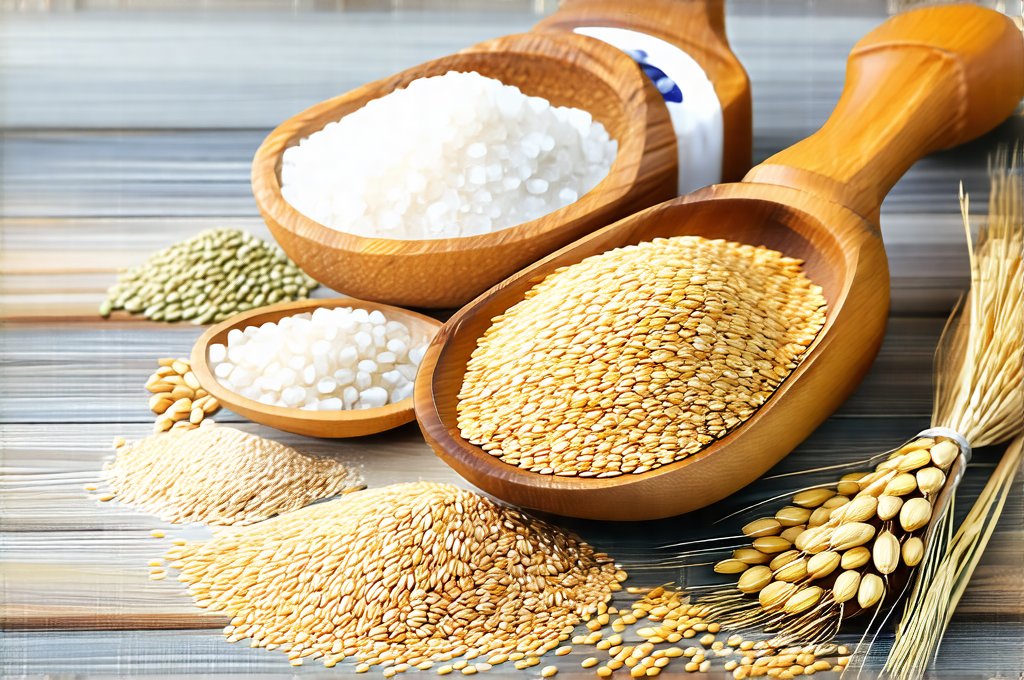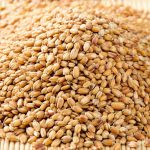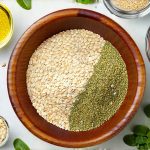Irritable Bowel Syndrome (IBS), bloating, and chronic constipation are unfortunately common experiences for many people, significantly impacting their quality of life. Often, dietary choices play a substantial role in triggering or exacerbating these symptoms. While there’s no one-size-fits-all diet for IBS sufferers, understanding how different grains affect the digestive system can be incredibly empowering. Many conventional grain-based diets are heavy on components that contribute to inflammation and gut distress, but thankfully, there’s a growing awareness of gentler, more easily digestible alternatives. This article will explore some of the best grain options – and pseudograins! – for those seeking relief from IBS symptoms, bloating, and constipation, focusing on their nutritional profiles and how they interact with sensitive digestive systems.
The key to choosing grains for gut health isn’t necessarily about eliminating them altogether (though some individuals may need to), but rather making informed selections. It’s about understanding the difference between refined grains which often lack fiber and nutrients, and whole grains that offer valuable vitamins, minerals, and prebiotic fibers. Prebiotic fibers feed the beneficial bacteria in your gut, promoting a healthy microbiome, which is crucial for proper digestion and overall well-being. Moreover, the level of FODMAPs (Fermentable Oligosaccharides, Disaccharides, Monosaccharides, and Polyols) in grains can significantly influence IBS symptoms; we’ll touch on this important concept as we examine each option. Ultimately, finding the right grains involves a degree of experimentation and personalization guided by your individual tolerance levels and symptom triggers.
Navigating Grains for Gut Health: Understanding FODMAPs & Fiber
FODMAPs are short-chain carbohydrates that are poorly absorbed in the small intestine. This means they travel to the large intestine where they are fermented by bacteria, potentially producing gas, bloating, and discomfort – particularly problematic for individuals with IBS. While not all grains are high in FODMAPs, some contain significant amounts of fructans (found in wheat, rye, and barley) or polyols (like sorbitol and mannitol), which can trigger symptoms. It’s essential to be aware of the FODMAP content of grains and choose options that are lower in these compounds, especially when starting a new dietary approach. However, completely eliminating all FODMAPs isn’t always necessary or desirable – the goal is to identify your triggers and find a balance that allows you to enjoy food without discomfort. Fiber plays a dual role in gut health. Insoluble fiber adds bulk to stool, helping to relieve constipation, while soluble fiber dissolves in water, forming a gel-like substance that can slow digestion and promote regularity. However, for some individuals with IBS, too much fiber – particularly insoluble fiber – can actually worsen symptoms. The type of fiber matters; gradually increasing your intake of soluble fiber is generally better tolerated than rapidly adding large amounts of insoluble fiber. Furthermore, the gut microbiome’s ability to process different types of fiber varies from person to person, further emphasizing the need for personalized dietary adjustments.
Ancient Grains: Teff, Sorghum & Millet
Ancient grains like teff, sorghum, and millet are gaining popularity due to their nutritional benefits and relatively low FODMAP content (though portion control is still important!). Teff is a tiny grain originating from Ethiopia, packed with iron, calcium, and resistant starch which acts as a prebiotic. It has a mild, molasses-like flavor and can be used to make porridge, pancakes, or added to smoothies. Sorghum, another ancient African grain, is naturally gluten-free and boasts high levels of antioxidants and fiber. Its neutral taste makes it incredibly versatile – you can pop it like popcorn, grind it into flour for baking, or use it in salads. Millet comes in several varieties and offers a slightly sweet flavor. It’s rich in magnesium and phosphorus, essential minerals for energy production and bone health. Millet cooks quickly and is excellent as a side dish or breakfast cereal.
- Teff: Good source of iron & calcium; naturally gluten-free.
- Sorghum: High in antioxidants; versatile cooking methods.
- Millet: Rich in magnesium & phosphorus; quick cooking time.
These ancient grains generally offer a more digestible alternative to wheat, rye and barley, making them excellent choices for individuals with IBS or sensitivities. However, it’s important to note that even these grains can cause issues for some people, so starting with small portions is always recommended. Pay attention to your body’s response and adjust accordingly. For additional snack ideas that support gut health, consider exploring the best gut-safe snacks for work, travel, or post-workout recovery.
Rice: Brown vs White & Considerations for Bloating
Rice is a staple food globally, but the difference between brown rice and white rice significantly impacts its suitability for IBS sufferers. Brown rice retains its bran and germ layers, making it a whole grain rich in fiber, magnesium, and selenium. This increased fiber content can be beneficial for regularity but also potentially problematic for those sensitive to high-fiber diets – especially during flare-ups. White rice, on the other hand, has had these outer layers removed, resulting in lower fiber content and easier digestibility. While it lacks some of the nutrients found in brown rice, white rice is often better tolerated by individuals with IBS experiencing diarrhea or bloating.
The key consideration with rice isn’t necessarily which type to choose, but rather how it’s prepared. Overcooked rice can become stickier and harder to digest, potentially contributing to constipation. Additionally, some individuals may find that certain varieties of rice (like jasmine rice) are more likely to cause bloating than others. Basmati rice, for example, is often considered easier to digest due to its lower amylopectin content. Experimenting with different types and cooking methods can help you identify what works best for your digestive system. Understanding best cooking oils to use while preparing meals can also minimize discomfort.
Oats: A Fiber-Rich Option with Caveats
Oats are renowned for their soluble fiber content – specifically beta-glucan – which has been shown to promote heart health, regulate blood sugar levels, and improve gut microbiome diversity. However, the potential benefits of oats must be weighed against their FODMAP content. Rolled oats and steel-cut oats generally have a lower FODMAP load than instant oats, making them preferable choices for those with IBS. Instant oats are often more processed and may contain added sugars or ingredients that can trigger symptoms.
A common concern with oats is the presence of fructans, which can be problematic for some individuals. Monash University (a leading source of FODMAP research) has tested various oat products and found that a serving of 1/2 cup dry rolled oats is generally considered low-FODMAP. However, exceeding this amount may lead to digestive discomfort. Gluten contamination is another potential issue, as oats are often processed in facilities that also handle wheat. Choosing certified gluten-free oats is crucial for those with celiac disease or gluten sensitivity. To optimize your supplement routine and ensure maximum absorption, review the best time to take probiotics. If you’re struggling with nausea, bloating, or intestinal discomfort, explore low-FODMAP food ideas to find relief. Additionally, consider exploring fermented non-dairy options that may be more gentle on your digestive system. And finally, remember to follow best practices for cycling probiotics.
It’s important to remember that individual tolerance levels vary significantly. Start with a small portion of rolled oats and gradually increase your intake while monitoring your symptoms. If you experience bloating, gas, or diarrhea, reduce the amount of oats or consider switching to a different grain altogether.


















